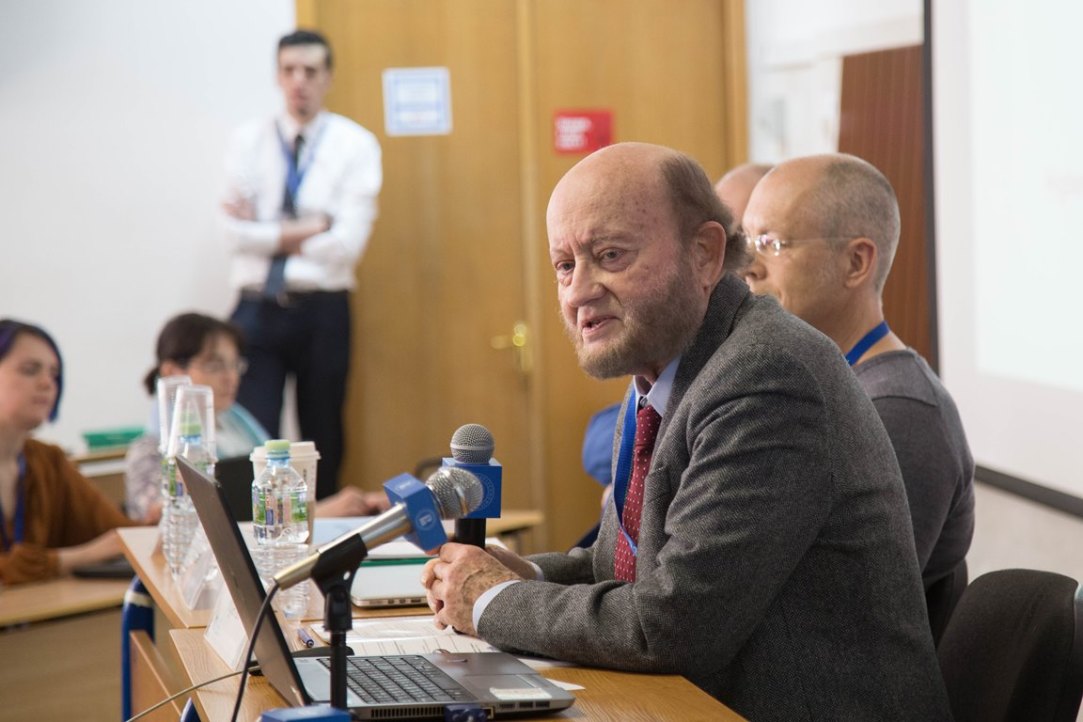VTB Starts Funding Comparative Social Research at HSE

This year VTB is launching the Endowment for Comparative Social Research at HSE. The endowment will make it possible to invest 10-20 million roubles in research each year. The exact amount will depend on trust management of the endowment assets, implemented by VTB Capital Investment Management.
The HSE Laboratory for Comparative Social Research, led by renowned sociologist and political scientist Ronald Inglehart, will receive funding from the endowment. Until the endowment has been formally created, VTB will co-finance the laboratory’s current activities.
This cooperation with HSE is an important part of VTB’s strategy, as it follows a government initiative to attract leading world scholars. The laboratory was created thanks to mega grants issued by the Russian Government in 2010.
In addition, given HSE’s impressive performance in the QS world subject ranking for sociology (151-200 place in 2015; 101-150 place in 2016; 51-100 in 2017), VTB notes that it considers it vital to support HSE’s leading research field, in order to further strengthen the opposition of Russian science and education on a global scale.
This support from business partners and HSE trustees is also helps provide talented young people, including researchers from other countries, with the conditions they need to build scientific careers in Russia, at a level that is comparable to global standards.
See also:
Admissions for ‘Comparative Social Research’ Master’s Programme Now Open
The English-taught master's programme in Comparative Social Research studies sociology from a global perspective and is intended for those who are interested in understanding how people's actions affect society and what influences the decisions and self-identification of individuals and groups in different cultures, regions and circumstances. Students participate in interregional and cross-country quantitative and qualitative research, working on their own projects. The programme’s academic supervisor Ekaterina Mitrofanova told HSE News Service about the course’s features and admission process.
HSE University Reports New Findings on Links between Job Satisfaction and Life Satisfaction
Natalia Soboleva has examined the impact of various factors on the link between job satisfaction and life satisfaction. Using data from the European Values Study, she found the association between job satisfaction and life satisfaction to vary across sociodemographic characteristics. In particular, job satisfaction contributes more significantly to life satisfaction for men compared to women, while being married weakens the association between job satisfaction and life satisfaction. The paper is published in the International Journal of Sociology and Social Policy.
‘Outstanding Alumni Endowment’ Supports Young Scientists with Scholarships
The winners of the Student Research Paper Competition were given their awards at HSE University on Pokrovsky Boulevard. The ‘Outstanding Alumni Endowment’ scholarship was given to the authors of the best works in the ‘Economics’, ‘Sociology’ and ‘Political Science’ categories.
Faculty of Computer Science to Become First HSE Department with Own Endowment
On April 26, the HSE Academic Council approved a charter for the creation of a Board of Trustees at the Faculty of Computer Science. Board members include senior executives from Yandex, JetBrains, SAS, 1C, and Sberbank. The endowment will be used by the faculty to fund long-term projects.
Authoritarianism as the Opposite Pole of Postmaterialism
On April 10, Ronald Inglehart, founder of the World Values Survey and the Laboratory for Comparative Social Research, delivered an honorary lecture at the LCSR’s 9th international seminar held as part of HSE’s XX April Academic Conference. The lecture addressed the roots of authoritarianism, its relationship to other widely investigated phenomena and its empirical linkage with contemporary politics.
Single People Get Less Happy as They Age
While being single or married does not usually make much difference in terms of life satisfaction for younger people, single individuals tend to feel less happy as they age, particularly at certain moments of their lives, and most single people experience a peak of unhappiness once they retire, according to Anna Shirokanova, Senior Research Fellow of the HSE Laboratory for Comparative Social Research in St. Petersburg.
Voronovo Student Center Gains New Sports Ground Funded by HSE Endowment
On October 18, the opening ceremony for a new sports ground took place at HSE's Voronovo Student Center. The sports ground was fully funded by the HSE Endowment, and is the first project delivered on endowment funds.
Life of the Russian Regions is Hidden from the Government
About 40% of the Russian able-bodied population are employed in the informal sector of the economy. This is a competitive market economy. Subsistence production, distributed manufacturing, ‘garage production’, seasonal work and various cottage industries flourish in the Russian regions. The economies of many small cities feature strict specialization and developed cooperation, in the context of internal competition between families and clans. These are the findings of HSE professors Simon Kordonsky and Yury Pliusnin in their study ‘Social Structure of the Russian Provinces’.
Sexual Revolution Not Universal in Post-Soviet Countries
Attitudes towards family and sexual norms vary widely across the former Soviet Union republics. At the country level, economic development and the level of religiosity both help to determine attitudes, while age plays an important role at the individual level. Middle-aged people tend to be more liberal than those who are older or younger, according to a study conducted by Sofia Lopatina, Veronica Kostenko, and Eduard Ponarin of the HSE's Laboratory for Comparative Social Research (LCSR) in St. Petersburg.
Belief in Life after Death Affects Suicide Rates
Followers of older, more established religions are less likely to commit suicide than adepts of newer faiths. Factors influencing the risk of suicide include a feeling of isolation from the majority and a belief in life after death, according to a study by Eduard Ponarin, Director of the HSE's Laboratory for Comparative Social Research (LCSR) in St. Petersburg, and Vassily Usenko, M.D., Ph.D., from Dnipropetrovsk.


